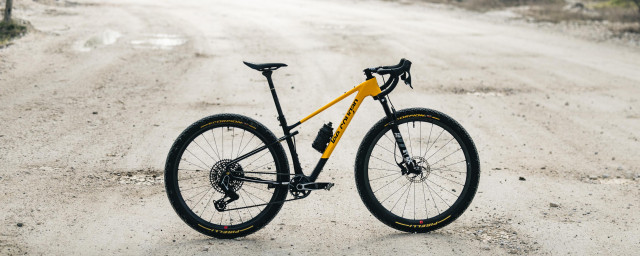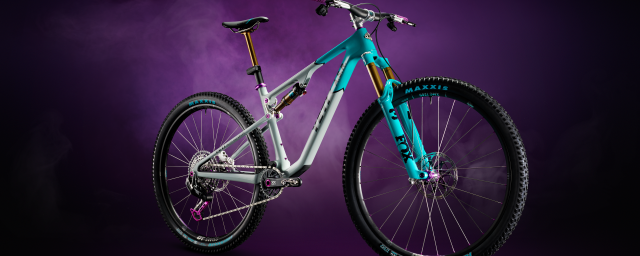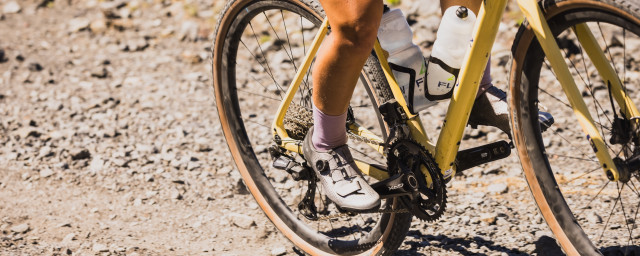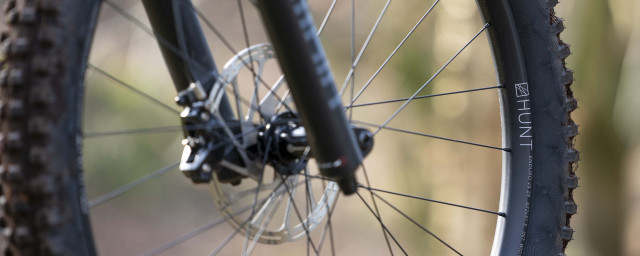Gravel cycling: Unsupported vs organised gravel events

The burgeoning gravel cycling scene is extremely popular across the globe - it offers something more than road riding which can be dangerous at times and it doesn’t require the skillset (or equipment) of mountain biking. Subsequently, it is no surprise that every year more supported gravel events keep popping up. Some are multi-day extravaganzas abroad, and others are day-long events that are not 'races' per se, but often end up being very competitive towards the front of the pack. But are these organised gravel events any different from riding the same route in your own time, unsupported?
- Your complete guide to bikepacking - what kit you need, how to plan and prepare plus inspiration for an adventure
- Lezyne Sport Gravel Drive Track Pump review £70.00
- Gravel bike geometry: everything you need to know
Is attending gravel events worthwhile? Could one not simply ride their bike without a schedule, the crowds, or any additional payments on the same routes? Well yes, but It’s not quite that simple.
We’re going to take a deep dive into the differences between these two forms of gravel riding to help you decide whether organised events or unsupported riding is a better fit for your preferences.
Understanding the cost of supported events
Let’s start off with the most obvious difference between doing an unsupported gravel ride versus attending one that is organised for you.
It is rather obvious that a supported ride is going to be more expensive. An organised, supported gravel ride can cost you anywhere from 100 to several thousand pounds. For example, the Hotchillee London to Paris gravel ride currently has a starting price of £1,900, which is a lot of money. Le Blanq also arranges luxurious cycling breaks, and those can be priced at around £2,500 for three days.
At the other end of the spectrum are one-day gravel events such as the Dirty Reiver, and Battle on the Beach, which cost between £46 and £75.
If you were to do a ride by yourself, you’d still need to factor in the cost of your travel, including accommodation, food, and insurance. But you'll also need to be self-sufficient.
On an organised ride, after you’ve booked your place at the event, all you really have to worry about is getting to the start line. You will have the route and the day(s) ahead planned and scheduled for you.
Socialising and networking
Unsupported gravel cycling doesn't necessarily mean a solo bikepacking adventure - you’re likely going to ride with friends when you can but the reality is that in some instances you'll be riding alone.
At organised events, you might not know the competitors but there will at least be other riders present. At the most exclusive events, you might even rub shoulders with famous cyclists such as Chris Hoy, Bradley Wiggins, or Brian Smith - which is a pretty cool thing in itself.
For us introverts, however, organised group events can also be very draining. You are bound to meet people you connect with immediately and others who… well, you won’t. And because you’re all on the same paid trip, it’s not quite easy to suddenly change your plans and ride solo if the group dynamic isn’t great.
Small group gravel rides with friends can be amazing for bonding but if you long for new riding pals or want to connect with people in the cycling industry, organised events are brilliant.
Meeting locals and learning about cultures
On multi-day gravel rides, you’re going to bump into some locals - unless your event is so well supported that you'll never even need to enter a local shop.
When you attend an organised event, you are likely to interact with the local people in the towns you ride through and you might not visit any local services at all if your support allows you to restock on food, drink, and spare parts from a support car.
As someone who loves a wander around foreign supermarkets, and check out how they differ from my local British ones, I view this as a downside on supported rides.
On fully supported rides you will also have less contact with locals at restaurants, cafe’s - even bike shops if you have a mechanic with you. This, of course, is a perk in the sense that sometimes the language barrier can be a rather frustrating and time-consuming aspect of an unsupported trip.
Then again, that's what cycling longer distances is all about - discovering new places and learning about the surrounding cultures.
Skills required - mechanical, route planning, carrying your stuff
Gravel cycling specifically requires a little more mechanical skills than road riding, and in some cases, also general survival skills. Gravel routes can be extremely remote with resupplying opportunities far and few between. This means that if something breaks, you are on your own.
Unless you have a support car. At supported events and organised rides you usually have at least one experienced mechanic on standby ready to fix your jumping gears or change a tyre. Worst case scenario, if the bike can't be fixed on-site you'll get a van ride back to the destination spot.
The support car will also house a day bag for you, meaning you don’t have to carry any additional weight on your gravel bike. Having nothing on your bike obviously makes the ride a lot easier and faster.
This directly links with the biggest difference between a self-organised vs supported ride: the planning. Depending on your trip length, you can spend hours on route-planning apps making sure that you’re not going to end up on motorways, and ensuring the route will include places for food, toilet breaks, and a spot for sleeping. In addition to this, you need to make sure you’ve packed all the essential tools and spares and that everything fits into your bikepacking bags and that those bags fit your bike.
Which option is best for you?
There are endless factors to consider when deciding whether to enter a gravel event or just go ride the route in your free time. Hopefully, the above points bring some clarity to both options - and highlight the fact that neither is perfect.
If you enjoy solitude, don’t fret at a few mechanicals, and enjoy meeting locals on your cycling adventures, then an unsupported trip is probably more rewarding. It takes some time to arrange and if you’re camping on your gravel ride, an initial investment is required, but the upshot is being flexible with your plans, time management, and routing options. You can also decide to ride only when the weather is nice, or when you know the route will be quiet.
If, on the other hand, you hate planning and love to be pampered - then an organised, supported ride is definitely for you. It costs a little more but, if you value your time - it is definitely worth it. You will still meet great people, network with some possibly famous cycling enthusiasts, and get to ride some pretty rad routes that have been planned and risk-assessed for you.














